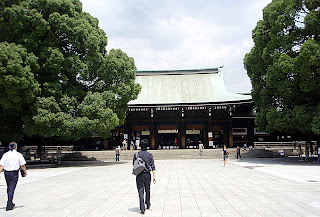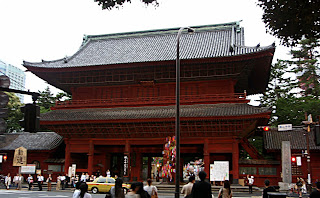Yasukuni Shinto Shrine is dedicated to the kami (spirits) of soldiers and others who died fighting on behalf of the Emperor of Japan.

The shrine's haiden, the main prayer hall where worshipers come to pray:


Mitama Matsuri, held annually between 13-16 July, is a celebration of the spirits of the ancestors (soul festival). The entry walk is decorated with 40 foot high walls of 29 000 or more lanterns, and thousands of visitors come to pay respects to their lost relatives and friends.





































